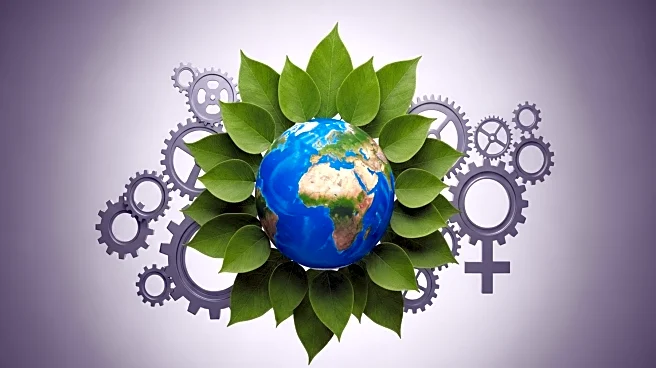What's Happening?
The International Monetary Fund (IMF) is set to restructure its climate change and gender units, integrating them into its macro-financial and structural policies division. This decision follows criticism from Treasury Secretary Scott Bessent, who accused the IMF of 'mission creep' by focusing on climate and gender issues rather than its core economic stability role. The IMF, traditionally seen as a global economic stabilizer, has faced scrutiny for its involvement in these areas, which some argue detracts from its primary mission. The restructuring is expected to be formalized at the upcoming Fall meetings in mid-October.
Why It's Important?
The restructuring of the IMF's units reflects broader debates about the role of international financial institutions in addressing social and environmental issues. Critics argue that the IMF's focus on climate and gender detracts from its economic responsibilities, potentially impacting its effectiveness in stabilizing debt-laden economies. The U.S., as the largest shareholder, holds significant influence over IMF policies, and this move may signal a shift towards prioritizing traditional economic roles over social agendas. The decision could affect global economic policies and the IMF's approach to international financial crises.
What's Next?
The formal approval of the restructuring is anticipated at the IMF's Fall meetings. This change may prompt reactions from various stakeholders, including environmental and gender advocacy groups, who may view the move as a step back from progressive policies. Additionally, the IMF's future focus on macroeconomic issues could lead to shifts in its lending practices and policy recommendations, impacting countries reliant on its support. The U.S. administration's influence may continue to shape the IMF's priorities, potentially affecting international economic strategies.









